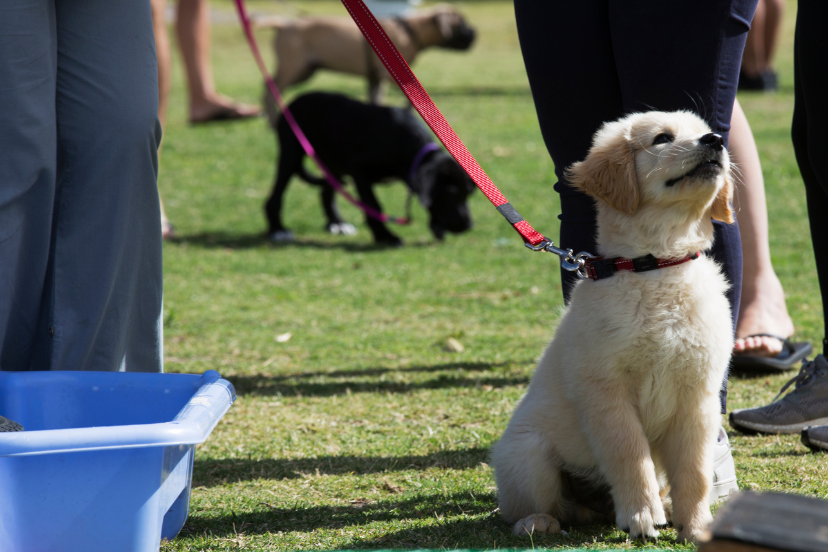Puppy Socialization Checklist: Raising a Well-Adjusted Pup
Introduction: Setting Your Puppy Up for Success
So, you’ve brought home a bouncing bundle of fur, those adorable puppy eyes melting your heart with every blink. Now what? Cue the puppy socialization checklist! From meeting new friends to exploring the big wide world, this guide is your roadmap to ensuring your furry friend grows up to be the well-adjusted, confident doggo you know they can be. Let’s dive in!
The Importance of Puppy Socialization Checklist
Socialization isn’t just about teaching your pup to play nice at the dog park (though that’s definitely part of it!). It’s about laying the foundation for a happy, confident, and well-behaved dog. Early socialization experiences can shape your puppy’s behavior for life, influencing how they react to new people, animals, and environments. With the right checklist in hand, you can help your pup navigate the world with ease.
What is Puppy Socialization?
Puppy socialization is the process of exposing your furry friend to a variety of people, animals, sounds, and experiences in a positive and controlled manner. This helps them build confidence, learn appropriate behavior, and develop coping skills for new situations. Think of it as giving your puppy the tools they need to thrive in the human world.
Getting Started
1. Start Early
It’s never too soon to begin socialization! The critical window for socializing puppies is between 3 and 14 weeks of age, so don’t wait until your pup is fully vaccinated to start the process.
2. Create Positive Experiences
Make socialization fun and rewarding for your pup. Use treats, toys, and praise to reinforce positive behaviors and associations with new experiences.
3. Take it Slow
Every puppy is different, so tailor your socialization approach to suit your pup’s personality and comfort level. If they seem overwhelmed, take a step back and try again later.
4. Be Consistent
Consistency is key when it comes to socialization. Make sure to expose your pup to a wide variety of people, animals, and environments on a regular basis.
What to Include
5. Meeting New People
Introduce your pup to a diverse range of people, including men, women, children, and individuals wearing hats, sunglasses, or other accessories.
6. Interacting with Other Dogs
Arrange playdates with friendly, vaccinated dogs to help your pup learn appropriate social skills and communication cues.
7. Exploring Different Environments
Take your pup on outings to new places, such as parks, beaches, cafes, and busy streets, to help them feel comfortable in various environments.
8. Experiencing Different Sounds
Expose your pup to different sounds, such as traffic, sirens, construction, and household appliances, to prevent noise phobias later in life.
9. Handling and Grooming
Get your pup used to being handled by gently touching their ears, paws, tail, and mouth, and introduce them to grooming tools like brushes and nail clippers.
10. Basic Obedience Training
Start teaching your pup basic commands, such as sit, stay, and come, using positive reinforcement techniques.
Frequently Asked Questions (FAQs)
1. When should I start socializing my puppy?
Answer: It’s best to start socializing your puppy as early as possible, ideally between 3 and 14 weeks of age.
2. Is it safe to socialize my puppy before they’re fully vaccinated?
Answer: Yes, it’s safe to start socializing your puppy before they’re fully vaccinated, as long as you take precautions to minimize their risk of exposure to contagious diseases.
3. How often should I socialize my puppy?
Answer: Aim to socialize your puppy several times a week, gradually increasing the frequency and duration of outings as they grow older.
4. What if my puppy seems scared or anxious during socialization outings?
Answer: If your puppy seems scared or anxious, take a step back and give them time to adjust. Never force them into situations that make them uncomfortable.
5. Can I socialize my puppy at home?
Answer: Yes, you can socialize your puppy at home by exposing them to different people, sounds, and experiences in a controlled environment.
6. What should I do if my puppy shows signs of aggression during socialization?
Answer: If your puppy shows signs of aggression, seek guidance from a professional dog trainer or behaviorist to address the issue safely and effectively.
Conclusion: Embrace the Journey
Armed with your puppy socialization checklist, you’re ready to embark on an exciting journey of discovery with your furry companion. Remember, socialization isn’t just a box to check off—it’s an ongoing process that requires patience, consistency, and lots of love. So grab those treats, leash up your pup, and get ready to explore the world together. Happy socializing!




